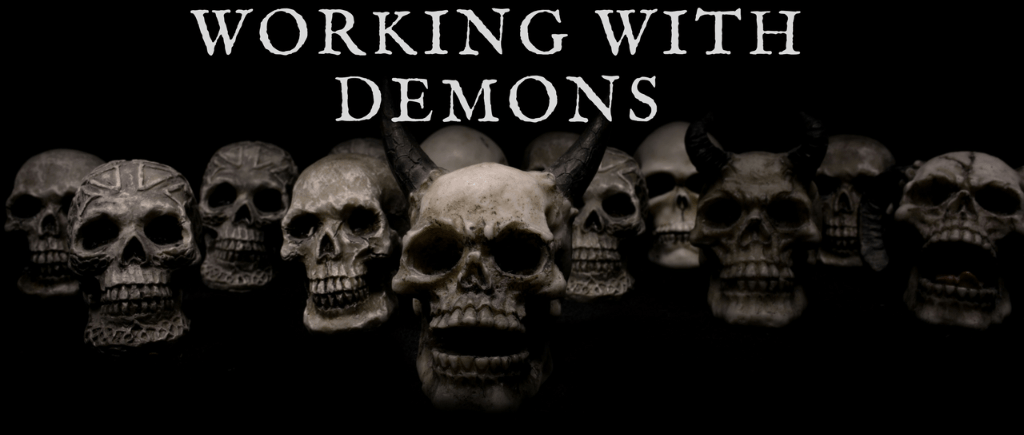Blog, Working With Demons
Working with Dybbuks
A dybbuk can simply be referred to as a form of possessing spirit which was the dislocated soul of a dead person. This is the most popular form of explanation to what a dybbuk generally is. Although, this does not truly touch-down on the important aspects of the spirit.
Dybbuk was mentioned in the Jewish mythology and was named from the Yiddish word which means ‘cling’. Its plural form is written as Dybbukim. To further explain what a dybbuk is, one must understand what both possessing spirits and malicious spirits are. They are spirits well known to take claim of the body of a living person often to suit their desires whether selfish or for a just cause. These types of spirits are dreaded by normal folks, and sent away when found present.
Some people also believe that dybbukim are forgotten spirits who wander the earth and are unable to enter the afterlife due to their past sins. This leaves them in a state of unrest until they forcefully take control of the body of a human and make the host to suffer from severe mental conditions.
Characteristics of Dybbuks

A Dybbuk will always depart from the body of the host immediately it has completed its goal; they occasionally need help to do this. The Jewish folklore is full of superstitious elements which greatly highlights on the fact that a lot of sicknesses, illness and unnatural activities in the body are as a result of dark supernatural forces which forcefully inhabit the body of the said victim.
These dark forces or demons (as they are now so popularly called) reside and come from a realm of existence where evil and darkness is predominant. This realm in Kabbalistic terms is known as the Sitra Ahra.
When a person or living being is possessed by a dybbuk, the only solution is to rid the host of the spirit through series of exorcism so that the spirit can be sent to where it came from.
Demons like the dybbuk have a common habit of clinging to a human soul and as a dog fights to protect its bone, the demon will not hesitate to respond violently to anyone around it when it feels threatened or afraid.
Dybbuks love to stick to lost, dead souls who have not been able to transcend into eternity for whatsoever purpose there might be. After clinging, it would lead the soul like a puppet into the body of an unsuspecting living person. This body effectively serves dual purposes; to the lost soul, it’s is a resting place and to the demon, it is an instrument to bring forth mayhem, pain and despair.
How these spirits or demons attach themselves to bodies evidently mirrors how Jewish people (and Christians as well) believe that the soul of a man or woman should cling to God or how particular benevolent spirits (angels) attach themselves to a soul, protecting it from any supernatural harm.
Who can rid a body of a dybbuk?
A dybbuk just like any unholy spirit in some religions cannot be driven away unless through exorcism by a holy man, in this case, a rabbi (the chief teachers of the Jewish community). The said person must be pure of heart and soul. He must be able to take up the strenuous activity to whatever extent it may lead to.
To properly and effectively exorcize a dybbuk involves its removal from the body it has possessed at that particular period of time and eventually returning it back to the land of the dead. It is only in this way can peace and order be restored to the body as even the divine order of the cosmos will be at rest. Since all dybbukim are stubborn, they will likely refuse to leave, thereby putting up a fight until they are beaten.
How to exorcise a dybbuk
Exorcising a dybbuk also involves a shocking yet striking ritual bent on driving the spirit forcefully out of the body of its host. A ceremony is first conducted in a synagogue (where the Jewish community go to worship God) with ten men present who have already made themselves holy by fasting and ritual immersion. These men will all dress in white shrouds which corpses are buried in, they will be wreathed in prayer shawls, their heads and arms will be bound by the sacred parchment worn in daily prayers.
The exorcist then speaks to the dybbuk directly, outlining all the sins that the spirit committed in its time as a human. He also threatens and cajoles the dybbuk to frighten it and appeal to its better side.
The dybbuk must be warned about entering another body and reminded of the gravity of what it has done (that is, the possession of a human body in the world of the living). It must also be told why there is no place for it to remain, why it must go back to the realm of the spirits and never come back.
When the dybbuk is more relaxed and willing, the ark in the synagogue which bears the scrolls of Torah are opened.
Seven scrolls are opened, seven blasts blown from seven horns of rams with seven black candles lit. Curses are laid, incantations recited and seven different combinations of the forty-two letter name of God are pronounced. Only then can the spirit or dybbuk freely leave the body of its host and return to the world of the dead to stay. Only then can the formerly possessed person find true rest.
Citations:
- https://www.thejc.com/judaism/features/how-to-deal-with-a-dybbuk-1.479193
- https://en.m.wikipedia.org/wiki/Dybbuk
- http://www.ghostvillage.com/legends/2003/legends32_11292003.shtml
- https://web.archive.org/web/20100305145702/http://jhom.com/personalities/ansky/dybbuk.htm
Books Recommendation

